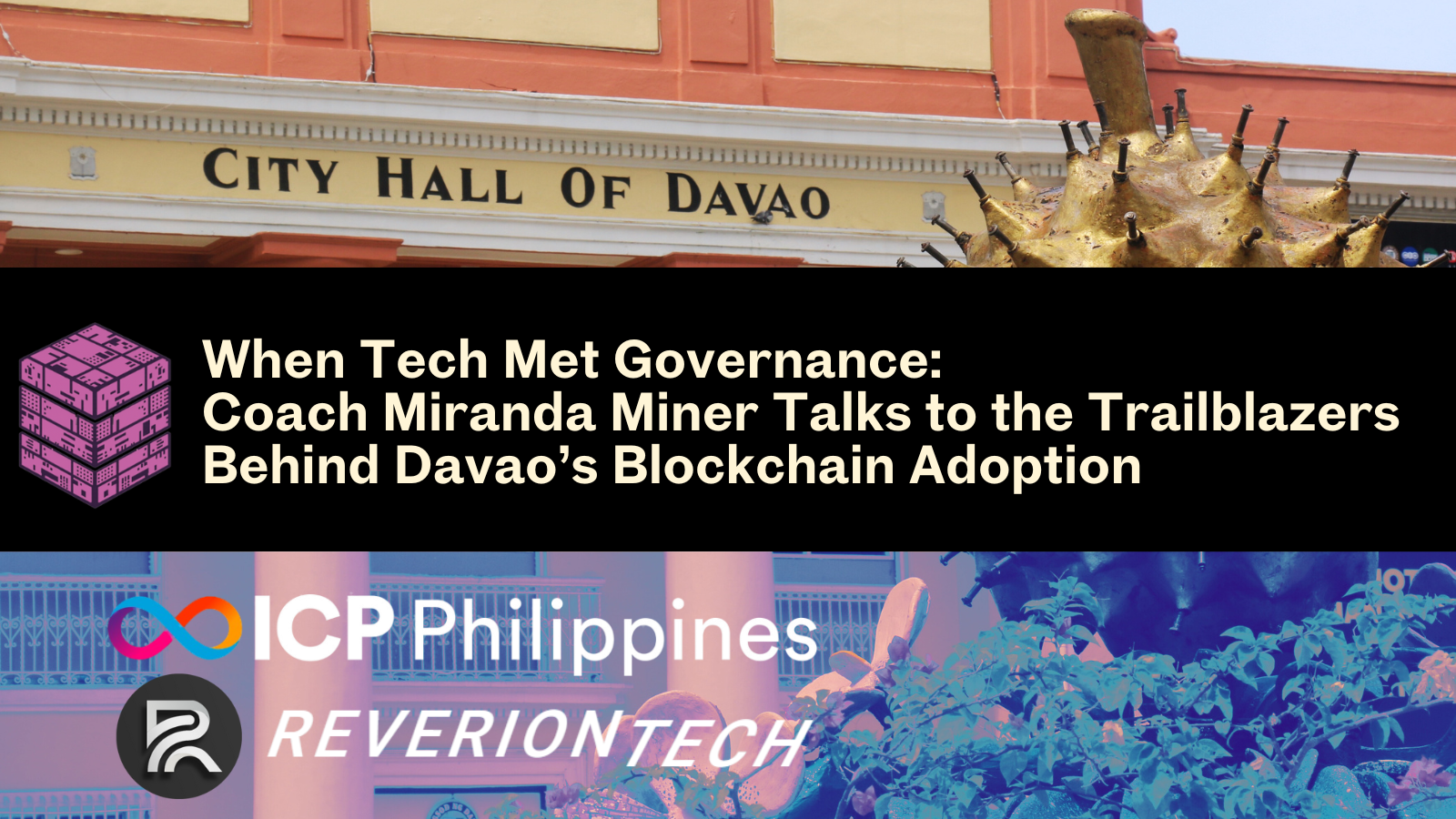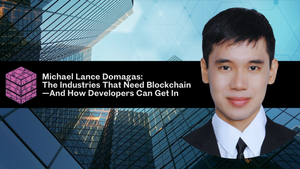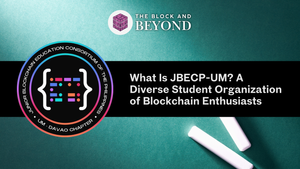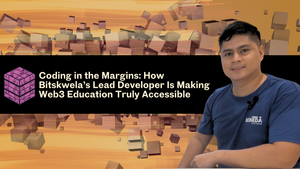What happens when a city under constant cyberattack teams up with developers and blockchain educators to future-proof its systems?
At a glance, the story sounds like science fiction. A city government embarks on a digital transformation with the help of a Web3 developer group and a blockchain foundation. But that’s exactly what is unfolding in Davao City.
What started as a series of casual meetups and technical workshops has now grown into an ambitious local initiative to integrate blockchain into government infrastructure, from unified citizen IDs to secure departmental systems.
The movement took center stage in a special episode of Coach Miranda Miner’s podcast. Featured guests included:
- Rod Albores, founder of ReverionTech
- Nelson Lumbres, co-founder of ICP Philippines
- Jun Barber, IT lead from Davao LGU
Each brought a different perspective to the discussion: the tech enabler, the blockchain visionary, and the government.
Why Web3 Matters for Public Infrastructure
The project didn’t originate from national directives or top-down orders. It began at the community level. Rod Albores, founder of ReverionTech, express his role on the matter:
“Our goal is really to train developers and then to spark up the interest… Now, why Web3? And why do we need to secure the data? Why do we need to address cybersecurity?”
Albores, a developer and community organizer, saw firsthand how government websites were vulnerable to cyberattacks. These weren’t just speculative risks. Davao’s city systems had been compromised repeatedly. Jun Barber, the representative from Davao LGU's IT division, frankly expressed the dilemma they were dealing with.
"Honestly, we're always being attacked, and it's hard for us to contain those attacks."
This vulnerability drove Davao’s local leaders to explore stronger solutions. Albores introduced the city to Internet Computer Protocol (ICP), a blockchain platform capable of full-stack decentralization, from front-end applications to backend data storage.
ReverionTech then organized a training program for Davao's City Information and Technology Center, bringing them up to speed with the unique architecture and security features of ICP. Finally, Albores explained why they chose ICP when working with the Davao LGU.
“Based on our research and studies, we know that ICP has the capability to address their pain points.”
The Vision of Blockchain as a Service
Nelson Lumbres, co-founder of ICP Philippines, provided the larger vision. His team had been laying the groundwork for years through education and developer support. In Davao, they found both the pain point and the political will. He expressed the importance of education as proof.
“The education part is critical because it's a showcase of the capabilities of the tech.”
He emphasized that the goal isn’t just about decentralization for its own sake. It’s about security, scalability, and transparency. From smart contracts to decentralized IDs, Lumbres believes blockchain can bring lasting value to governance.
“We're talking about solving that trillion-dollar issue, which is the cybercrime happening year on year.”
Moving from Plans to Deployment
The collaboration is now expanding. The city plans to connect various departments through a blockchain layer, using it to audit transactions, manage IDs, and protect critical data. These aren’t pilot projects in theory.
Training sessions have shifted from theoretical to hands-on. Developers from the LGU are deploying smart contracts themselves.
The decentralized identity system is a particularly urgent piece. According to Barber, the city is ready to issue a unified citizen ID whether blockchain is integrated or not. But his hope is to embed blockchain from the start.
“Hopefully, we'll be able to catch up with the blockchain before we distribute the ID.”
Facing Roadblocks and Finding Local Solutions
For this collaboration to scale, it must overcome legal and procurement challenges. LGU projects must have legal bases, and blockchain isn’t yet mainstream in terms of government procurement policy. That’s where local partnerships become crucial.
Davao requires blockchain providers with a physical presence in the city. Fortunately, ReverionTech is based locally. Albores explains that the technology is here, the resources are available, and the work just has to begin.
“We have the technology, and the resources are available… We just have to have the grit and determination to push it forward.”
Why This Model Could Be Replicated
What sets this project apart isn’t just the tech stack. It’s the structure. Instead of a national agency imposing standards, this is a city taking ownership of its digital journey. That grassroots nature may be its greatest strength.
Coach Miranda Miner pointed out the uniqueness of the moment. He expressed admiration for Davao’s initiative and even teased the idea of replicating the approach in other cities.
“Nakaka-excite kayo sa Davao,” he said with a grin.
The partnership between ICP Philippines, ReverionTech, and Davao’s local government offers a living case study in how blockchain can leap from theory to public service. And it all started with a conversation between developers, educators, and civil servants who saw a better way forward.
Learn more about Philippine and Davao City crypto developments with The Block and Beyond.











